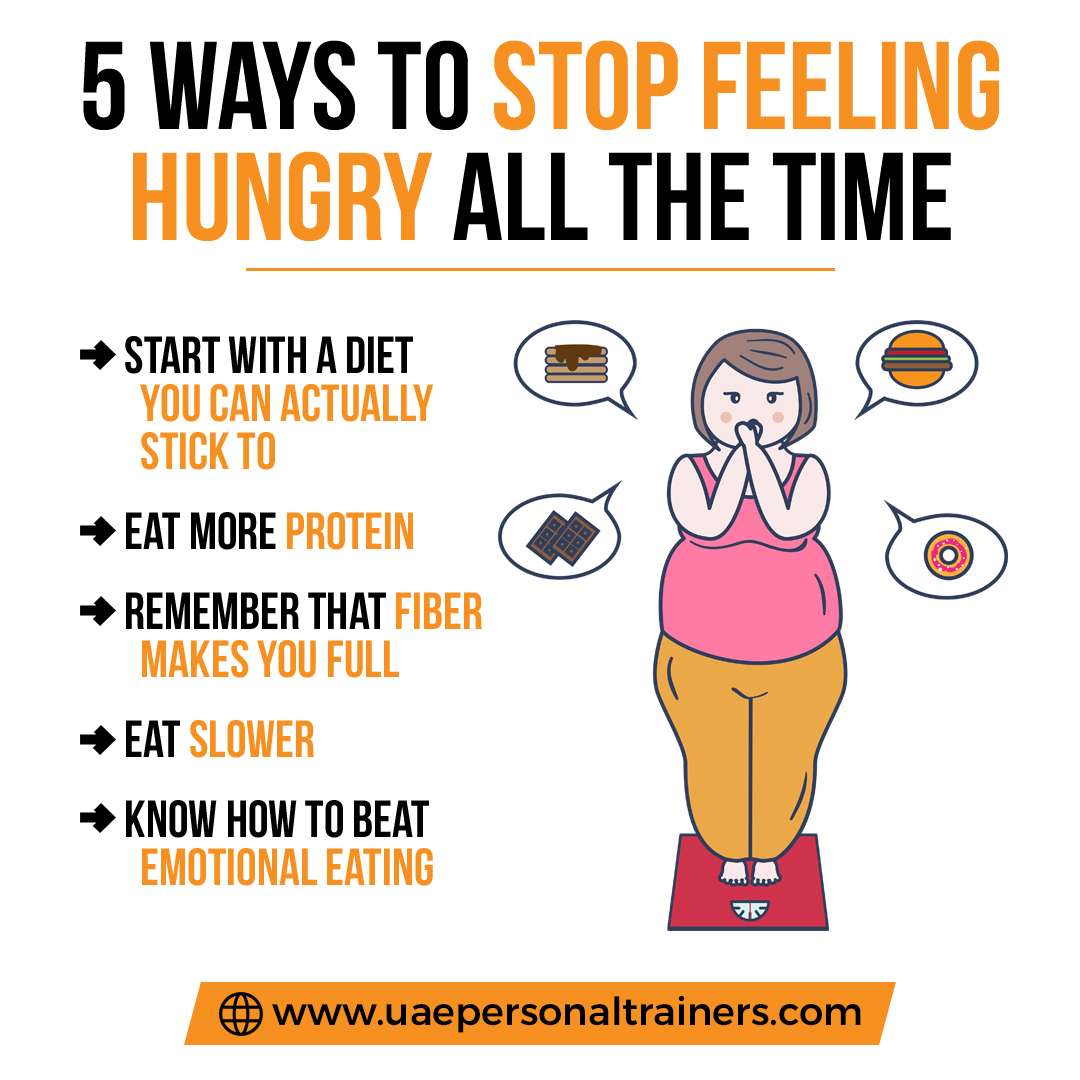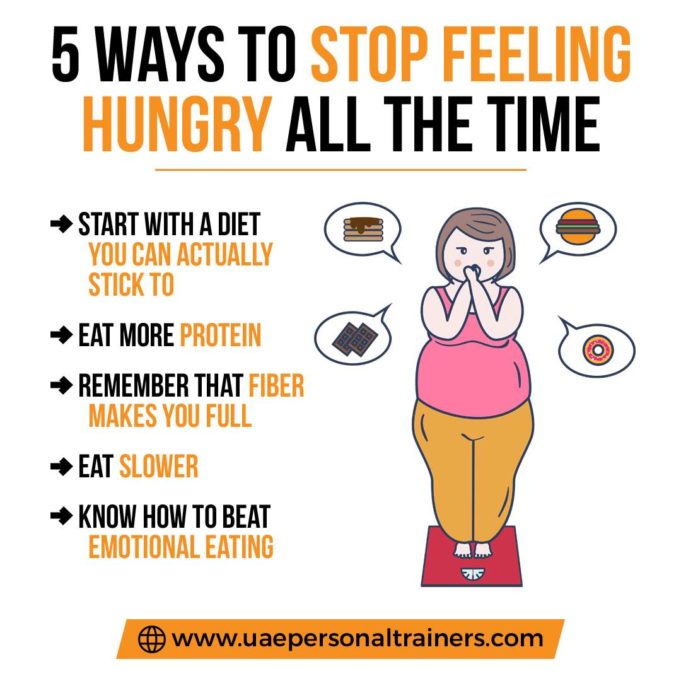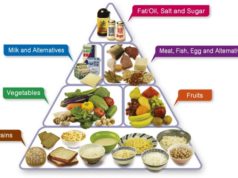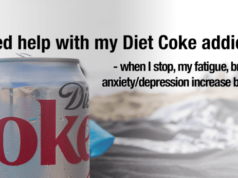How not to diet? It’s a question that’s been swirling in our minds for decades, a whispered rebellion against the tyranny of scales and restrictive meal plans. We’ve all been there, caught in the vicious cycle of dieting, only to find ourselves back at square one, feeling defeated and disillusioned.
But what if there was a better way? A path to a healthy and happy relationship with food that didn’t involve deprivation, guilt, or endless calorie counting? This guide is a refreshing departure from the usual diet dogma, offering a roadmap to a life where food is celebrated, not feared.
Forget the restrictive rules and the endless promises of quick fixes. This is about embracing a holistic approach to wellness that prioritizes your physical and mental well-being. We’ll delve into the psychology behind the diet mentality, explore the power of mindful eating, and uncover the joy of body acceptance.
This is a journey towards a more fulfilling relationship with food, one that nourishes both your body and your soul.
Understanding the Diet Mentality
The diet mentality is a pervasive mindset that views food as an enemy to be conquered, leading to a cycle of restriction, deprivation, and guilt. This approach to food can have profound psychological consequences, ultimately hindering your relationship with food and your overall well-being.
The Psychological Impact of Restrictive Dieting
Restrictive dieting often triggers a sense of deprivation, leading to cravings and binge eating. This can create a vicious cycle of guilt, shame, and self-criticism, further fueling the desire to restrict. Additionally, constant focus on weight and food can lead to obsessive thoughts and behaviors, impacting mental clarity and focus.
Common Pitfalls of Traditional Dieting
Traditional diets often promise quick weight loss, but these results are usually temporary. Here are some common pitfalls:
- Focus on calorie restriction:Restricting calories without considering nutrient needs can lead to deficiencies and an unhealthy relationship with food.
- Unrealistic expectations:Diets often set unrealistic goals, leading to frustration and disappointment when results don’t align with expectations.
- Exclusion of entire food groups:Diets that eliminate entire food groups can create nutritional imbalances and make it difficult to maintain long-term.
Long-Term Consequences of Yo-Yo Dieting
Yo-yo dieting, the cycle of weight loss and regain, can have detrimental effects on your health.
- Metabolic changes:Repeated weight fluctuations can disrupt your metabolism, making it harder to lose weight in the long run.
- Increased risk of chronic diseases:Yo-yo dieting is associated with an increased risk of developing chronic diseases such as heart disease, diabetes, and certain types of cancer.
- Negative impact on mental health:The constant focus on weight and body image can lead to anxiety, depression, and low self-esteem.
Cultivating a Healthy Relationship with Food
Imagine a world where food isn’t a source of stress, guilt, or restriction, but a source of joy, nourishment, and connection. It’s a world where you listen to your body’s cues and embrace the fullness of flavors without judgment. This is the essence of cultivating a healthy relationship with food – a journey that involves mindful eating, intuitive eating, and embracing body acceptance.
Mindful Eating
Mindful eating is a practice that involves paying full attention to the experience of eating, without judgment or distractions. It’s about savoring each bite, noticing the textures, aromas, and flavors, and tuning into your body’s signals of hunger and fullness.Here are some practical strategies to cultivate mindful eating:
- Eat without distractions:Turn off the TV, put away your phone, and find a quiet place to enjoy your meal.
- Slow down:Take smaller bites, chew thoroughly, and savor each mouthful.
- Pay attention to your senses:Notice the colors, textures, aromas, and flavors of your food.
- Check in with your hunger and fullness cues:Before you start eating, ask yourself, “Am I truly hungry?” During your meal, notice how your body feels and stop when you feel comfortably satisfied.
Intuitive Eating
Intuitive eating is a way of eating that honors your body’s natural hunger and fullness cues, without relying on external rules or restrictions. It’s about trusting your body’s wisdom and making peace with food.Intuitive eating involves:
- Rejecting diet mentality:It’s about letting go of the belief that you need to diet to be healthy or happy.
- Honoring your hunger:Eating when you’re truly hungry, not because it’s a certain time or because you feel pressured to eat.
- Respecting your fullness:Stopping when you’re comfortably satisfied, not stuffing yourself or feeling overly full.
- Making peace with food:Allowing yourself to eat whatever you want, without guilt or shame.
Body Acceptance and Self-Compassion, How not to diet
Body acceptance is about accepting and appreciating your body for what it is, without trying to change it. It’s about recognizing that your body is worthy of love and respect, regardless of its size or shape.Self-compassion is about treating yourself with kindness, understanding, and acceptance, especially during challenging times.
It’s about recognizing that you’re human, and that you’re going to make mistakes.Here’s how to cultivate body acceptance and self-compassion:
- Practice self-love:Focus on the things you appreciate about your body, both physically and emotionally.
- Challenge negative self-talk:When you have negative thoughts about your body, challenge them with evidence of your body’s strength, resilience, and beauty.
- Surround yourself with positive influences:Spend time with people who support you and celebrate your body.
- Engage in activities that make you feel good:Whether it’s dancing, hiking, painting, or spending time with loved ones, find activities that nourish your body and soul.
Building Sustainable Lifestyle Habits: How Not To Diet
Building sustainable lifestyle habits is crucial for maintaining a healthy relationship with food and achieving long-term well-being. This involves integrating positive changes into your daily routine, making them a natural part of your life rather than temporary fixes. By focusing on consistency and gradual progress, you can create a lifestyle that supports your physical and mental health.
Designing a Daily Routine
Creating a balanced daily routine that prioritizes both physical activity and rest is fundamental to sustainable lifestyle habits. Here’s a guide to help you design a daily routine that supports your well-being:
- Prioritize Sleep:Aim for 7-9 hours of quality sleep each night. Consistent sleep patterns help regulate your hormones, improve your mood, and enhance your cognitive function.
- Schedule Movement:Incorporate at least 30 minutes of moderate-intensity exercise most days of the week. This can include brisk walking, cycling, swimming, or dancing.
- Plan for Mealtimes:Establish regular mealtimes to prevent excessive hunger and mindless snacking.
- Incorporate Relaxation Techniques:Dedicate time for activities that help you de-stress, such as yoga, meditation, reading, or spending time in nature.
- Limit Screen Time:Reduce screen time before bed to improve sleep quality.
Organizing a Nutrient-Rich Meal Plan
A well-organized meal plan that focuses on nutrient-rich foods is essential for providing your body with the energy and nutrients it needs to function optimally.Here are some tips for creating a sustainable meal plan:
- Focus on Whole Foods:Prioritize fruits, vegetables, whole grains, lean proteins, and healthy fats.
- Cook More Meals at Home:This allows you to control ingredients and portion sizes.
- Plan Ahead:Prepare meals or snacks in advance to avoid impulsive choices when you’re hungry.
- Experiment with New Recipes:Explore different cuisines and cooking methods to keep your meals interesting and enjoyable.
- Listen to Your Body:Pay attention to your hunger and fullness cues.
Managing Stress and Emotional Eating
Stress and emotional eating can sabotage your efforts to build sustainable lifestyle habits. Learning to manage stress and address emotional eating patterns is crucial.Here are some strategies for coping with stress and emotional eating:
- Identify Triggers:Recognize the situations, emotions, or thoughts that lead you to overeat.
- Practice Stress Management Techniques:Explore relaxation techniques such as deep breathing, meditation, yoga, or spending time in nature.
- Find Healthy Alternatives:When you’re feeling stressed or emotional, engage in activities that provide a sense of calm and well-being, such as exercise, listening to music, or spending time with loved ones.
- Seek Support:If you’re struggling to manage stress or emotional eating, consider seeking support from a therapist or counselor.
Challenging Diet Culture
Diet culture is a pervasive force in our society, constantly bombarding us with messages about how our bodies should look and what we should eat. This relentless pressure can be incredibly damaging, leading to negative body image, disordered eating, and a host of other health problems.
It’s time to challenge the diet culture and embrace a healthier relationship with food and our bodies.
The Role of Media and Social Pressure
Media plays a significant role in perpetuating diet culture. Magazines, television shows, social media platforms, and even advertisements often portray unrealistic body ideals and promote weight loss as the ultimate goal. This constant bombardment of images and messages can lead to feelings of inadequacy and dissatisfaction with our own bodies.
Social pressure also plays a major role. We are surrounded by people who are constantly talking about diets, weight loss, and body image. This can create a sense of pressure to conform, leading us to feel like we need to be thinner or more “perfect” to be accepted.
Harmful Messages Perpetuated by Diet Trends
Diet trends are often promoted as quick fixes for weight loss, but they rarely offer sustainable solutions. These trends often focus on restrictive eating, deprivation, and unrealistic expectations. Here are some of the harmful messages perpetuated by diet trends:
- Certain foods are “bad” or “off-limits”:This can lead to feelings of guilt and shame around food, making it difficult to develop a healthy relationship with it.
- Weight loss is the ultimate goal:This can overshadow the importance of overall health and well-being.
- You need to be thin to be happy or successful:This is a harmful and unrealistic message that can lead to low self-esteem and body dissatisfaction.
- Dieting is the solution to all problems:This ignores the fact that weight loss is often not the root cause of our problems and can be a symptom of other issues.
Resources and Support Groups
If you are struggling with disordered eating or negative body image, it’s important to seek support. There are many resources available to help you challenge diet culture and develop a healthier relationship with food and your body. Here are some resources:
- National Eating Disorders Association (NEDA):NEDA provides a wealth of information, resources, and support for individuals struggling with eating disorders. Their website includes information on different types of eating disorders, treatment options, and how to find help.
- The Body Positive:The Body Positive is an organization that promotes body acceptance and self-love. They offer workshops, online resources, and support groups for individuals of all sizes.
- National Association of Anorexia Nervosa and Associated Disorders (ANAD):ANAD provides information and support for individuals struggling with eating disorders, as well as their families and loved ones.
Embracing Body Positivity

The journey to a healthy relationship with food is not just about what you eat but also about how you feel about yourself. Embracing body positivity is a vital part of this journey, allowing you to appreciate and love your body in all its unique glory.
The Importance of Challenging Societal Beauty Standards
Society often bombards us with unrealistic and narrow beauty standards, promoting a singular ideal that excludes the vast diversity of human bodies. This can lead to feelings of inadequacy, shame, and self-doubt, particularly for those who don’t fit into the idealized mold.
Challenging these standards is crucial for cultivating a healthy self-image and celebrating the beauty of individuality.
Forget the restrictive rules and deprivation! The secret to lasting weight loss isn’t about denying yourself, but finding a sustainable approach that fits your lifestyle. Check out this guide on the best diet to lose weight that actually works for you, and you can finally say goodbye to those yo-yo diet cycles!
- Remember that beauty comes in all shapes, sizes, and colors. There is no single definition of beauty, and it’s time we celebrate the diverse tapestry of human bodies.
- Question the messages you receive through media, advertising, and social media. Be mindful of how these platforms influence your perception of beauty and challenge the unrealistic expectations they often present.
- Focus on appreciating your body’s strengths and capabilities. Celebrate your unique features and acknowledge the amazing things your body can do, from walking, dancing, and playing sports to simply being a vessel for your incredible spirit.
Examples of Diverse Body Types and Their Beauty
The beauty of the human body lies in its diversity. Let’s celebrate the uniqueness of each body type and recognize the inherent beauty in every individual.
- Curvy:Curvy bodies are often celebrated for their voluptuous curves and feminine allure. Think of iconic figures like Marilyn Monroe or Beyoncé, who have redefined beauty standards with their confident embrace of their bodies. Their curves are a testament to the beauty of diverse body shapes.
- Petite:Petite individuals often exude an air of elegance and grace. Think of Audrey Hepburn, a timeless icon whose petite frame was a symbol of sophistication and style. Their delicate features and smaller stature contribute to a unique and captivating beauty.Forget the restrictive rules and deprivation! Instead of obsessing over every calorie, focus on building a healthy relationship with food. Maybe that means learning to love vegetables, or maybe it means indulging in a piece of chocolate cake without guilt.
Whatever your path, remember that sustainable weight loss isn’t about deprivation, it’s about finding a lifestyle that works for you. And if you’re looking for some guidance on how to make healthy choices, check out this helpful resource on diet to lose weight.
But remember, the real key is to listen to your body and find what makes you feel good, both physically and mentally.
- Tall:Tall individuals often possess a commanding presence and a striking visual impact. Think of models like Naomi Campbell or Cindy Crawford, who have graced the runways with their statuesque figures and powerful aura. Their height is a source of strength and beauty, commanding attention and admiration.
- Muscular:Muscular bodies are often associated with strength, power, and athleticism. Think of athletes like Serena Williams or Simone Biles, who have defied expectations and broken barriers with their muscular physiques. Their strength and determination are a testament to the beauty of a powerful and capable body.
Inspiring Stories of Body Positivity
There are countless individuals who have embraced body positivity and become powerful voices for self-love and acceptance. Their stories inspire us to challenge societal norms and celebrate the beauty of our unique bodies.
Let’s be real, diets are about as fun as watching paint dry. But if you’re looking to shed some of that stubborn belly fat, there are ways to do it without feeling like you’re constantly on a battlefield against your favorite foods.
Check out this diet on how to lose belly fat for some tips, but remember, the best way to avoid a diet is to just eat what you love in moderation. Because let’s face it, life’s too short to be miserable over a plate of broccoli.
- Lizzo:A Grammy-winning singer and songwriter, Lizzo has become a vocal advocate for body positivity, encouraging people to embrace their bodies and celebrate their curves. Her music and her outspoken stance on self-love have resonated with millions worldwide.
- Ashley Graham:A renowned model, Ashley Graham has shattered industry standards by proudly showcasing her curves and advocating for body diversity in the fashion world. She has become a symbol of inclusivity and a role model for countless individuals seeking to embrace their bodies.
- Tess Holliday:A plus-size model and body positivity activist, Tess Holliday has challenged the narrow definition of beauty in the fashion industry. Her activism has helped to break down barriers and promote the acceptance of diverse body types.
Closing Summary
So, ditch the diet labels, shed the guilt, and embrace the freedom of a life without restrictions. It’s time to redefine what it means to be healthy and happy. This isn’t just about shedding pounds; it’s about shedding the societal pressures that have kept us trapped in a cycle of self-doubt and dissatisfaction.
This is about reclaiming your power, embracing your unique body, and celebrating the joy of nourishing yourself with love and respect. This is how not to diet.
User Queries
What if I’m not sure I can give up dieting completely?
It’s okay to take things one step at a time. Start by identifying your triggers and developing healthy coping mechanisms. Remember, the goal is to find a sustainable approach that works for you.
What if I’m worried about my health?
Consult a healthcare professional to address any specific health concerns. This guide is not a substitute for medical advice.
How can I deal with the pressure to diet from society?
Surround yourself with positive influences and build a support system of like-minded individuals. It’s important to challenge the harmful messages we’re bombarded with and celebrate diversity.
























